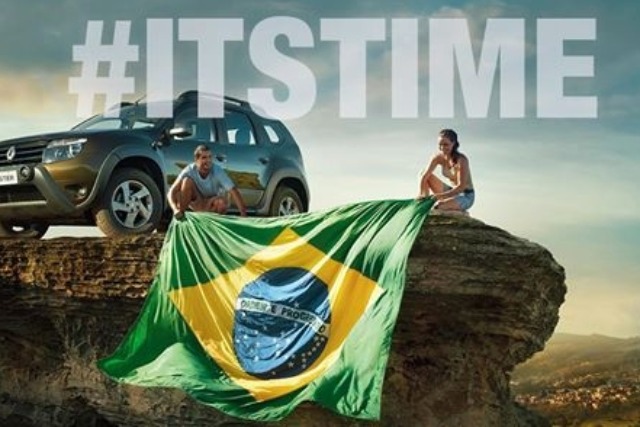Brazil, the spiritual homeland of football, is just days away from the sport’s biggest event. But brands face a huge dilemma on how to present the tournament to disillusioned Brazilian consumers.
Frustrations surrounding the rampant corruption that has plagued and hampered preparations is a key talking point in major cities, in particular the investment of public money in stultifyingly expensive stadiums over critical sectors such as education and health.
Walking down a street in cities such as São Paulo, you are confronted with euphoric messages celebrating the World Cup by sponsors such as Coca Cola and Bank of Brazil, alongside unofficial, guerilla campaigns calling on Brazilians to reject the event.
Walking through São Paulo, you are confronted with euphoric messages celebrating the World Cup by sponsors, alongside campaigns calling on Brazilians to reject the event.
The expression of frustrations spilt out onto the streets last June during FIFA’s warmup tournament for the event, with popular protests involving violent crashes with the police, dubbed the Brazilian Spring.
From this perspective, the seemingly ‘no-brainer’ formula of engaging Brazilians’ dream of a sixth World Cup has become far more complicated for marketers.
Local sentiments regarding patriotism, pride and participation are complicated by disappointment in those responsible for the disastrous preparations. Local magazine Época ran a cover last week entitled ‘A Manual for Surviving the Cup’, featuring burning buses, protesters, riot police, and with the wording "how to keep your distance from the confusion".
Many richer Brazilians are planning to take holidays overseas during the tournament to avoid the predicted chaos.
The challenge
In a context where many Brazilians feel disillusioned by the tournament, brands need to be sensitive to aggravating or disrespecting local sentiment.
Renault is an example of a brand looking to address frustrations. Building on the marque’s ‘It’s Time’ campaign - usually expressed comically through a ring-announcer screaming the slogan in your ear - the brand has released a subtle but inspiring message ahead of the World Cup.
A print ad features two 20-somethings who have parked their Renault 4WD at the top of a summits, they are pictured draping a Brazilian flag over the ridge face. The accompanying wording suggests, "it’s time - this is the hour to confront challenges".
The campaign’s message is in-keeping with Renault’s position about change, but also makes a powerful statement about the World Cup as a crucial political and social milestone for Brazil, in the hope that lessons will be learnt to the benefit of the nation and its future.
With this in mind, here are three tips for brands looking to leverage the World Cup to connect with their Brazilian consumers:
1 – Avoid conflating the success of the Brazilian team with the success of Brazil
Already in local social media sites, commentators and celebrities are asking people to maintain a critical stance irrespectful of a Brazil victory. Messages should instead focus on the traditional role that the football has played in creating Brazilian character, something timeless and beyond the politics of the day. Passion, not patriotism.
2 – Suggest a future beyond the World Cup, not a feverish focus on the event in isolation
Already Brazilians feel the tournament will be a wakeup call, highlighting deficiencies in an economy still in development. Take an optimistic message that the tournament is a stepping stone to realising the potential of Brazil, a future that will see the Olympics hosted locally and Brazil take a greater role in the world. Broader picture, not just now.
3 – Highlight the internationalism of the event
Despite the nation’s increasing prosperity, Brazil remains relatively isolated from the rest of the world. Foreign cultures are only seen through the narrow prism of tourism and foreign celebrities. The World Cup creates an opportunity for Brazilians to understand unfamiliar cultures through the medium of a common language, football.
Taking the emphasis away from Brazil is a less politicised way to celebrate the tournament. Visa, an official sponsor, has tapped this sentiment well by "celebrating" the foreigners that ruined Brazil’s dream in the past, such as Zinedine Zidane and Paolo Rossi (see below). This is a global celebration that Brazil happens to be hosting.


